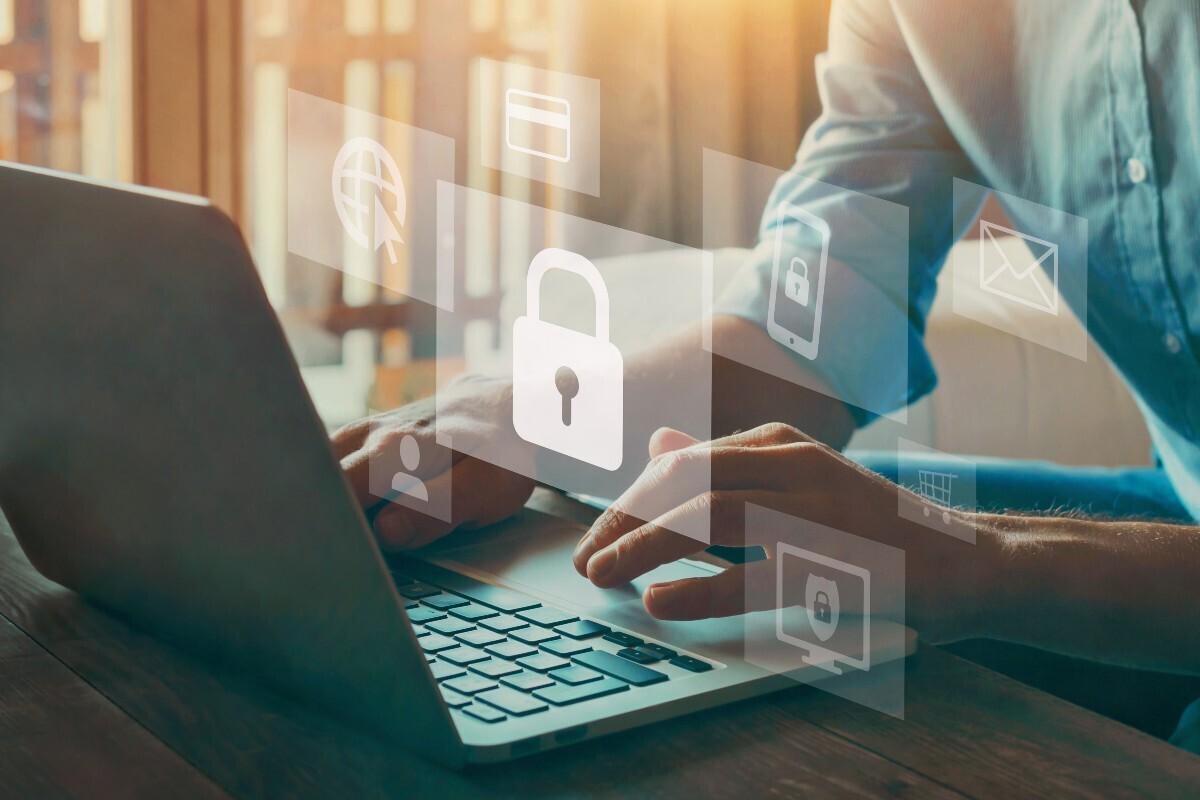
Every business has heard of cyber security, but thousands are unaware that a simple firewall or basic antivirus protection is insufficient and often outdated where desktop-based software isn't automatically updated and may not remain fit for purpose.
Last year, over half of all SMEs experienced a cyber attack, increasing from 39% to 54% in the UK. Of those, 18% were not protected by their existing cyber security assets, and the average cost of an attack for a small business was £4,200 – rising exponentially for larger organisations.
Jera, a full-service Edinburgh IT support specialist offering a comprehensive range of cyber IT security, strategy and assistance, explains the crucial nature of cyber security for UK businesses and which types of protection are most valuable for long-term risk prevention.
Cyber Security Fundamentals Explained
When we first consult with a new client, we take the time to map all of the digital assets, infrastructure and networks that build up the bigger picture of a company's online activities – because there are countless potential types of cyber attacks, with hackers developing new techniques just as quickly as cyber security providers upgrade their defences.
As a few examples of the most frequent data breaches, hacks and cyber security thefts:
- Domain Name System (DNS) attacks involve the hacker replicating the appearance of a legitimate website – such as an online banking landing page. Often, they will send an email or other communication that appears authentic and capture the login details the user enters when they follow the link provided.
- Trojan horses use malicious programmes or viruses hidden within files that filters may miss – when the recipient opens the safe file, they release the concealed malware.
- Phishing is increasingly common, where a hacker or scammer will send a text or email that looks genuine as a way to steal login details or credit card information or install dangerous malware on the user's device.
- Zero-day exploits involve a hacker exploiting a vulnerability within a system or network before a patch has been introduced, often timing attacks to fall between the discovery of the weakness and the software update.
Businesses conducting any of their processes online, from banking to e-commerce, communications to email marketing, should be confident that they have a blanket of security coverage to detect and prevent these serious threats.
Alongside financial losses, the impacts of data breaches and the theft of customer data can be detrimental to company reputations and even give rise to regulatory investigations and fines where the safeguards were found to be insufficient.
Essential Aspects of a Robust Cyber Security Strategy
No one specific programme, software or approach will be suitable for every business because the right way to protect your business from cyber security risks will depend on several factors, not least the nature of the organisation and how your systems and data are accessed.
For example, many companies have remote workers, or BYOD connectivity within their buildings, which may command protections such as multi-factor authentication and more sophisticated antivirus software on devices regularly connected to public-access Wi-Fi.
Likewise, if a company employs subcontractors or works in partnership with third-party organisations that have access to their databases, they may need to consider the right strategy to safeguard that data, verifying the identity of every user requesting access.
Zero-trust architecture may be advisable, where your cyber security network bases every access request on the assumption the device, network or individual attempting to log in is hostile, with robust authentication checks before granting entry.
Our advice for every commercial client is to start with a consultation and complete risk assessment rather than implementing cyber security protection that may not defend against the most significant threats. However, several aspects of cyber security are vital for businesses of all sizes and can provide a baseline of good practice and security awareness across your workforce, as listed below.
Employee Training and Digital Security Controls
Establishing a security policy is important, where employees and any individuals or organisations with access to your systems understand the need to update passwords regularly and follow guidance around safe internet usage.
The vast majority of breaches are successful due to human error, such as clicking an unverified link or using the same simple password across every part of the network.
Staff should also be trained in how to spot potential attacks and what to do – having a skilled cyber security adviser on hand is invaluable and means your workforce can defer to an expert to alleviate any concerns or allow them to act swiftly and decisively to shut the attack down.
Updating Firmware and Firewalls
Unfortunately, the fast-evolving nature of cyber crime means that installing a firewall or registering a new piece of hardware is not enough – updates are important for all browsers, operating systems and security programmes to ensure they have the latest updates and patches. Staff working from home should also have an adequate firewall in place.
Running regular scans or having an IT support provider monitoring your systems can identify potential threats before they materialise or patch vulnerabilities before they become major issues.
Using Secure Wi-Fi Networks
More and more workforces use mobile devices or have a hybrid working environment, which opens the door for additional potential risks, such as accessing corporate networks through a smartphone or a router through poorly protected Wi-Fi.
We suggest having a full mobile device policy that mitigates threats, often including secure SSID Wi-Fi to avoid broadcasting the name of your network and with router password protection.
Backing Up Data and Records
Data is valuable to hackers, who deploy ransomware, leak data, or steal customer banking information for illegal use. All business-critical data such as files, financial data and record-keeping should be backed-up regularly and stored securely, making it easier for a business to resume operations quickly if they are the victim of a cyber security attack.
Limiting Access to Necessary Areas
Finally, access to confidential and commercially sensitive information and systems should be protected, in line with the zero-trust methodology we mentioned earlier. Restricting access only to the data each individual needs reduces the likelihood of installing unapproved software or exposing business systems to breaches.
For any further advice about implementing any of these changes to your organisation or to schedule a chat to see how Jera would advise reinforcing and improving your cyber security protection, please get in touch at any time.
Read more about Jera - IT Support Specialist, Jera, Launches Cost-Effective Outsourced IT Support In Response to Rising Sector Business Costs
About Jera
Jera provides fully managed IT support, cybersecurity services, telecoms systems, and IT strategy consultancy to businesses based in Edinburgh, Aberdeen and IT Support in Glasgow and the surrounding areas.
***
Source Company: https://jerait.co.uk







